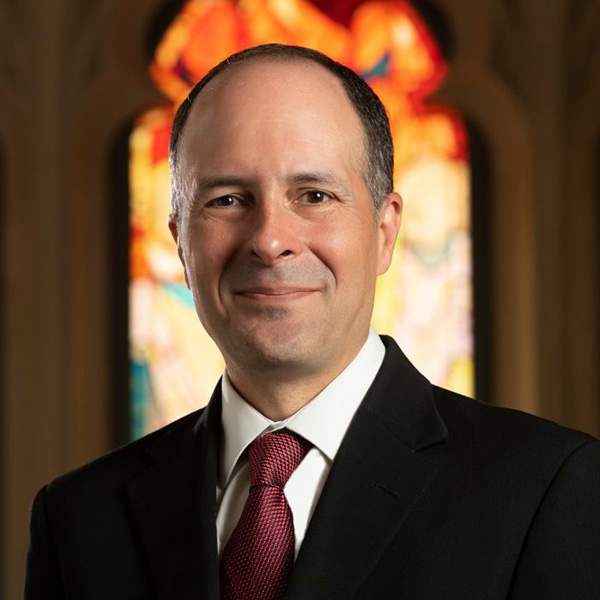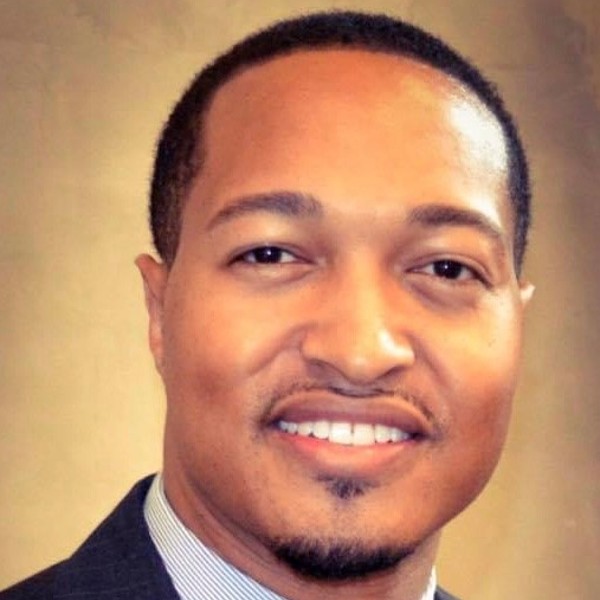When I was a child, there was almost always someone I didn’t know at our Thanksgiving table. We regularly hosted students from the college where my dad taught, especially those who were far from home.
I never questioned the author of Hebrews' instructions: “Do not neglect to show hospitality to strangers, for by doing that some have entertained angels without knowing it” (Hebrews 13:2 NRSVue). My childhood experiences of hospitality were safe, predictable gatherings that included a greater-than-average chance for dessert, if I was lucky. Entertaining strangers who might be angels seemed like a no-brainer.
While I am grateful for this early exposure to one form of hospitality, my view of the practice widened in divinity school when our ethics professor challenged us to consider the angelic encounters described in Scripture. Far removed from the strangers-turned-friends I had pleasant table conversations with growing up, the angels in Scripture may appear with flaming swords, such as those stationed east of Eden in Genesis 3, or with drawn swords, as the prophet Balaam recounts in Numbers 22.
The more I read, the more difficult and dangerous entertaining angels sounded. It was clear why angels begin so many conversations with “do not fear.”
In Genesis, I read how Abraham’s afternoon plans and the family budget went out the window after three visitors appeared and dinner preparations began by finding a calf in the field (18:1-15). Lot faces danger to his family and the loss of his home (19:1-29), while Jacob’s encounter ends with a permanent limp (32:24-31).
Similar stories in the New Testament recount Mary surrendering her bodily autonomy (Luke 1:26-38) and Zechariah losing his ability to speak (Luke 1:8-22).
The Christian practice of hospitality is about so much more than sharing a meal with people like ourselves. Entertaining strangers as angels in disguise involves risk, vulnerability and encounters with those unlike us. Some level of discomfort is essential. Yet extending hospitality is also a space of discovery and transformation, as our biblical predecessors experienced through their angelic encounters.
Theologian Thomas Ogletree writes: “To offer hospitality to a stranger is to welcome something new, unfamiliar, and unknown into our life-world. … Strangers have stories to tell which we have never heard before, stories which can redirect our seeing and stimulate our imaginations.”
We live in a moment where such connection and transformation are urgently needed. It is also harder and riskier to encounter those unlike us. Christine Pohl explains that as households have become more secluded and private, the risk to host and guest alike has increased.
Institutions play an increasingly important role in creating “third places” where people can connect. These social spaces, distinct from both home and workplace, are harder and harder to find, further limiting opportunities for transformative encounters with strangers.
Some places cannot safely open their doors to strangers in our current moment. The Christian practice of discernment must accompany extending hospitality in communities where particular vulnerable identities are being targeted. Yet in places where this is not the case, creating sacred space for encounter may be exactly what the church is being called to in “such a time as this” (Esther 4:14).
One of the gifts of my work is that I regularly bump into stories of congregations across the country that are doing the hard, messy, scary work of welcoming strangers. I hear more and more stories of churches that are designing third places and drawing on their spiritual resources to create belonging, offer support and remind the world — and themselves — that our value is not in what we produce but in who we are.
The results are as different as the congregations that create them. Members of Mack Avenue Community Church in Detroit asked their neighbors what they needed and, in response, created a community space with a cafe and laundromat. The pastor of Mt. Carmel Missionary Baptist Church in the small town of Folkston, Georgia, took the church outside, worshipping in parks, hosting community days and training cyclists in the town’s national wildlife refuge.
Holy Family Episcopal Church in Houston took an old a meat-packing warehouse and redesigned it to be a worship space that doubles as an art gallery, supporting local artists and welcoming community members all week long. North Decatur Presbyterian Church in suburban Atlanta hosted a community gathering after a government agency 3 miles away laid off a large number of staff. Congregation members made room for people to tell their stories and share resources. They also helped people find a sense of belonging and held their suffering in the larger story that the church tells.
I doubt any of these congregations would say this work is easy or that they’ve been trained to do it. They will likely name failures, lengthy timelines, fears and moments of discomfort as just some of the challenge they faced while deepening their practice of hospitality. Yet they continue to hold open this space. The transformative encounter is simply too important, too beautiful for them to stop.
On the day of Pentecost, the disciples were thrust outside the safety of the house and into a space thronged with strangers. Fire, wind, languages from across the globe and accusations of drunkenness swirled around them. And in that moment, the church was transformed forever.
Amazed and astonished, each one in the multinational crowd heard the good news in the language they spoke at home. Thousands were cut to the heart and received the promise of God for themselves. And the church did what it does best: it welcomed them in, shared its spiritual resources and affirmed their belonging and belovedness.
The Christian practice of hospitality is about so much more than sharing a meal with people like ourselves.
































